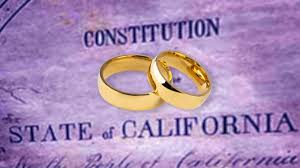California voters have decisively passed Proposition 3, embedding the right to same-sex marriage within the state constitution. The measure repeals the outdated language of Proposition 8, which restricted marriage to heterosexual couples.
Historic Decision Overturns Proposition 8
Proposition 3’s approval marks a pivotal step for LGBTQ+ rights in California. Passed by voters in 2008, Proposition 8 previously amended California’s constitution to limit marriage to a union between a man and a woman. Although same-sex marriage has been legally protected since the 2015 Supreme Court decision in Obergefell v. Hodges, the outdated language of Proposition 8 remained in the state constitution until now.
“Although marriage equality for same-sex couples has been the law of the land in the United States for years, California’s Constitution still says that same-sex couples are not allowed to marry,” supporters of Proposition 3 emphasized in the state’s Official Voter Information Guide.
Supporters Call it a “Common-Sense Update”
Support for Proposition 3 spanned various prominent organizations, including the Human Rights Campaign, California Chamber of Commerce, and the American Civil Liberties Union of Northern California. These groups argue that Proposition 3 removes outdated legal language and solidifies same-sex marriage rights within the state constitution, ensuring future protections against potential legal challenges.
The initiative garnered major backing, with supporters describing it as a necessary update to reflect California’s values of equality. Many advocates believe enshrining these rights in the constitution represents a safeguard for future generations.
Opposition and Concerns
Despite broad support, Proposition 3 also faced criticism. Conservative groups, including the California Family Council and the American Council of Evangelicals, raised objections. Opponents argue the amendment could have unintended consequences and opens the door to legally ambiguous issues.
“Current laws and court decisions already protect the right to marry, regardless of gender, sexual orientation, race, or ethnicity,” the opposition argued in the state voter guide. They suggested Proposition 3 could weaken protections by altering marriage definitions, citing concerns around polygamy and child marriage.
However, Proposition 3 proponents emphasized that the measure does not alter any regulations around age, consent, or legal marriage union requirements. They countered that these arguments are a misrepresentation designed to stoke fear among voters.
Political and Public Reactions
Following the announcement of the election results, LGBTQ+ advocates and allies celebrated what they describe as a landmark victory. “This was about making the law align with the beliefs of Californians today,” one advocate said, referencing the state’s longstanding commitment to equality.
Public sentiment around Proposition 3 was overwhelmingly positive, with voters across the state reflecting on how much the social landscape has evolved since the passage of Proposition 8 in 2008. Supporters say that removing such language from the constitution is overdue and necessary.
A Step Toward Equality
Proposition 3’s passage marks a historic step in California’s legal landscape, symbolizing the state’s continued commitment to equality and inclusivity. For advocates, this move is a confirmation of the state’s progressive values, sending a strong message of support for the LGBTQ+ community. While opposition groups remain skeptical, Proposition 3’s approval signifies California’s dedication to protecting marriage rights and adapting to the evolving values of its citizens.
credit












